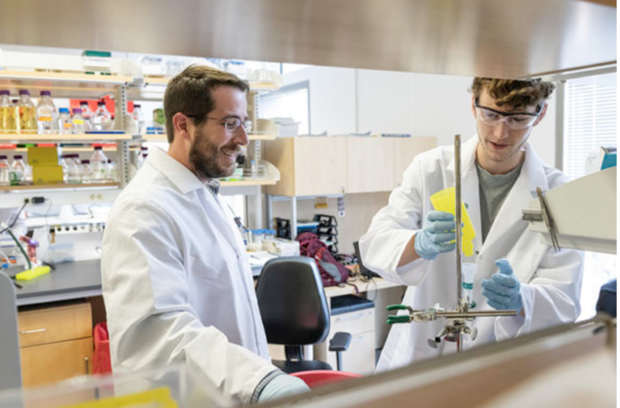UT Coronavirus Research Could Lead To Faster Vaccine Production
AUSTIN, Texas (CBSDFW.COM) - A scientific team at The University of Texas at Austin has successfully redesigned a key protein from the coronavirus, and the modification could enable much faster and more stable production of vaccines worldwide.
The new findings are described in the journal Science.
Most coronavirus vaccine candidates train the human immune system to recognize a key protein on the surface of the SARS-CoV-2 virus called the spike protein in order to fight infection.
Researchers designed a new version of this protein that, when expressed in cells, produces up to 10 times more protein than that of an earlier synthetic spike protein already in use in multiple COVID-19 vaccines, UT said in a news release Thursday.
Along with colleagues at the National Institutes of Health, several members of the UT research team also designed the earlier version of the spike protein found in at least two COVID-19 vaccine candidates currently in U.S. clinical trials.
"Depending on the type of vaccine, this improved version of the protein could reduce the size of each dose or speed up vaccine production," said Jason McLellan, an associate professor in the Department of Molecular Biosciences and senior author of the paper. "Either way, it could mean more patients have access to vaccines faster."
Dubbed HexaPro, the new protein is also more stable than the team's earlier version of the spike protein, which should make it easier to store and transport. It also keeps its shape even under heat stress, during storage at room temperature and through multiple freeze-thaws. Such qualities are desirable in a robust vaccine.
The Bill & Melinda Gates Foundation has contributed to the development of the technology through a grant in the interest of making vaccines accessible to people in lower-income countries. Vaccine companies with different platform technologies will have the ability to test and further develop COVID vaccines that use HexaPro.
McLellan has also indicated there is interest from partners in extending access to the technology to people in the developing world.
"Four billion people living in developing countries will need access to a vaccine, as all of us will," McLellan said.




